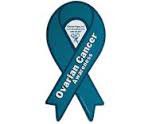
With ovarian cancer being one of the most lethal cancers affecting women in the western world, early detection remains elusive and a cure is only a possibility for a small minority, relates Prof. Beatrice Uziely, head of the Hadassah Medical Organization’s Oncology Ambulatory Services Unit. With a revolution occurring in the approach to cancer treatment, however, Hadassah’s Sharett Institute of Oncology is working toward a deeper understanding of inherited genes, as well as a tumor’s molecular structure–with the goal of employing tailored treatment to save more lives.
It is new technologies such as “Next Generation Sequencing” (NGS) that make this goal possible. NGS, also called “massively parallel” or “deep sequencing,” is a method of sequencing millions of strands of DNA in parallel, so that an entire human genome can be sequenced in a single day.
One current Hadassah clinical study is specifically focusing on understanding the contribution of inherited traits to the development of ovarian cancer. A joint effort of Hadassah’s oncology, gynecology, and genetics departments, the study involves 300 patients and is identifying founder mutations–those mutations which are found in high frequency within a specific population–all with a common ancestor.
While Hadassah research confirmed many years ago that there is at least a 10 times greater prevalence of BRCA1 and BRCA2 gene mutations among women of Ashkenazi descent, more recently Hadassah identified founder mutations in both Sephardic and Kurdish Jews. The Kurdish BRCA1 mutation–the latest to be identified at Hadassah–was found in four women from two unrelated Kurdish Jewish families and the finding is highlighted in the December 2015 issue of Open Medicine Journal. As the authors explain: “A set of 40 cancer patients of Kurdish Jewish descent who were diagnosed with cancer before the age of 50 years was tested. We identified the BRCA1 mutation in four women from two unrelated Jewish Kurdish families. We suggest testing Kurdish Jewish women with a personal or family history of breast and/or ovarian cancer for this mutation.”
All of the known BRCA mutations are now being tested for in Hadassah’s genetics department.
Hadassah reports that more than 40 percent of all cases of ovarian cancer have a hereditary component. The long-range goal is to identify more novel founder mutations within other ethnic groups in order to be able to educate women about their relative risk of getting ovarian cancer as it relates to their ancestry. In addition, Hadassah is planning a retrospective study that will attempt to re-sequence the genomes of all ovarian cancer patients who have been treated at Hadassah. First, Hadassah will test for known founder mutations. For those patients where a mutation is not found, the 22 hereditary cancer gene panel (comprised of those genes associated with a greater risk for ovarian cancer) will be examined.
As Prof. Tamar Peretz, head of the Sharett Institute of Oncology, explains: “Until recently (and still today in many centers in Israel), only the most common mutations in the BRCA1 & BRCA2 genes were evaluated. We know now that there are other mutations in those two genes that are not tested routinely. In addition, in our panel, we test 22 genes, two of which are the BRCA1 and BRCA2. And have validated the fact that there are mutations in these other genes that are linked to a higher risk of a woman getting ovarian cancer.”
Prof. Peretz further explains that “carriers of the BRCA mutation are often offered different, individually tailored treatments based on the knowledge we gather regarding the biological behavior of the tumor and its response to treatment. Moreover, patients with BRCA mutations are offered preventive oophorectomies (removal of the ovaries), as well as specific protocols for early detection of related cancers, such as breast, colon, and pancreatic cancer.”
